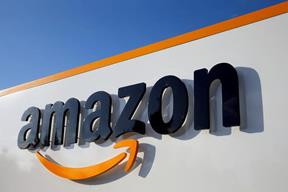In a series of revelations, Amazon finds itself embroiled in a series of allegations brought forward by the Federal Trade Commission (FTC). From flooding its platform with irrelevant ads to potentially manipulating the online pricing landscape, the tech behemoth's tactics are under scrutiny.
In a recent unearthing, the FTC disclosed that Jeff Bezos, Amazon's founder, advocated for the inclusion of what were termed as "defect" ads on the platform. These ads, often unrelated to user searches, were purportedly introduced to bolster the company's advertising revenues. An alarming outcome was that these ads sometimes displaced more relevant organic results, leading to a dilution of the user experience.
As an illustration, consumers searching for a Seattle Seahawks t-shirt were shown ads for LA Lakers merchandise. Strikingly, despite internal acknowledgment that such ads could degrade user experience, they remained a staple, partly because they had no adverse impact on Amazon's advertising revenues.
The reach of Amazon's advertising power is evident in its rapid ascent in the digital advertising space. Surpassing giants like Microsoft in 2018, Amazon now stands as the third-largest ad platform in the U.S., following Google and Facebook. In 2022, the tech giant reported a staggering $12 billion in advertising revenue for just the third quarter.
Yet, the company contends its commitment to ensuring a smooth shopping journey for its users. Amazon General Counsel, David Zapolsky, challenged the FTC's narrative, emphasizing that the firm's practices have invigorated competition and innovation in the retail domain.
But this isn't where the FTC's grievances end. In another twist, Amazon is accused of deploying a covert algorithm, codenamed "Project Nessie". This algorithm was allegedly activated to incrementally raise product prices, baiting other online platforms to follow suit. Once competitors matched these inflated prices, Amazon maintained the surge, resulting in substantial profits. The FTC believes that the "Project Nessie" gambit has enriched Amazon by over $1 billion.
Even Amazon's communication tactics during the FTC's probe have come into question. The agency asserts that Amazon, leveraging the disappearing message feature on the Signal app, obliterated over two years of communications that spanned from June 2019 to early 2022. Amazon spokesperson Tim Doyle dismissed these claims, underscoring that Amazon had disclosed its use of Signal and even allowed the FTC to inspect the conversations.
Finally, the spotlight turns to Amazon's stance towards third-party sellers. Accusations hint at Amazon pressuring sellers to utilize its logistics service, Fulfillment by Amazon (FBA). When sellers began showing interest in other fulfillment providers, Amazon allegedly retracted the Seller Fulfilled Prime program, even though the enrolled sellers had overwhelmingly met Amazon's delivery benchmarks.
The controversy is intense, and with the FTC ramping up its actions against major tech firms, it remains to be seen how this saga will unfold. As the narrative is further unveiled, Amazon continues to maintain its commitment to fostering competition and ensuring a seamless experience for its clientele.






